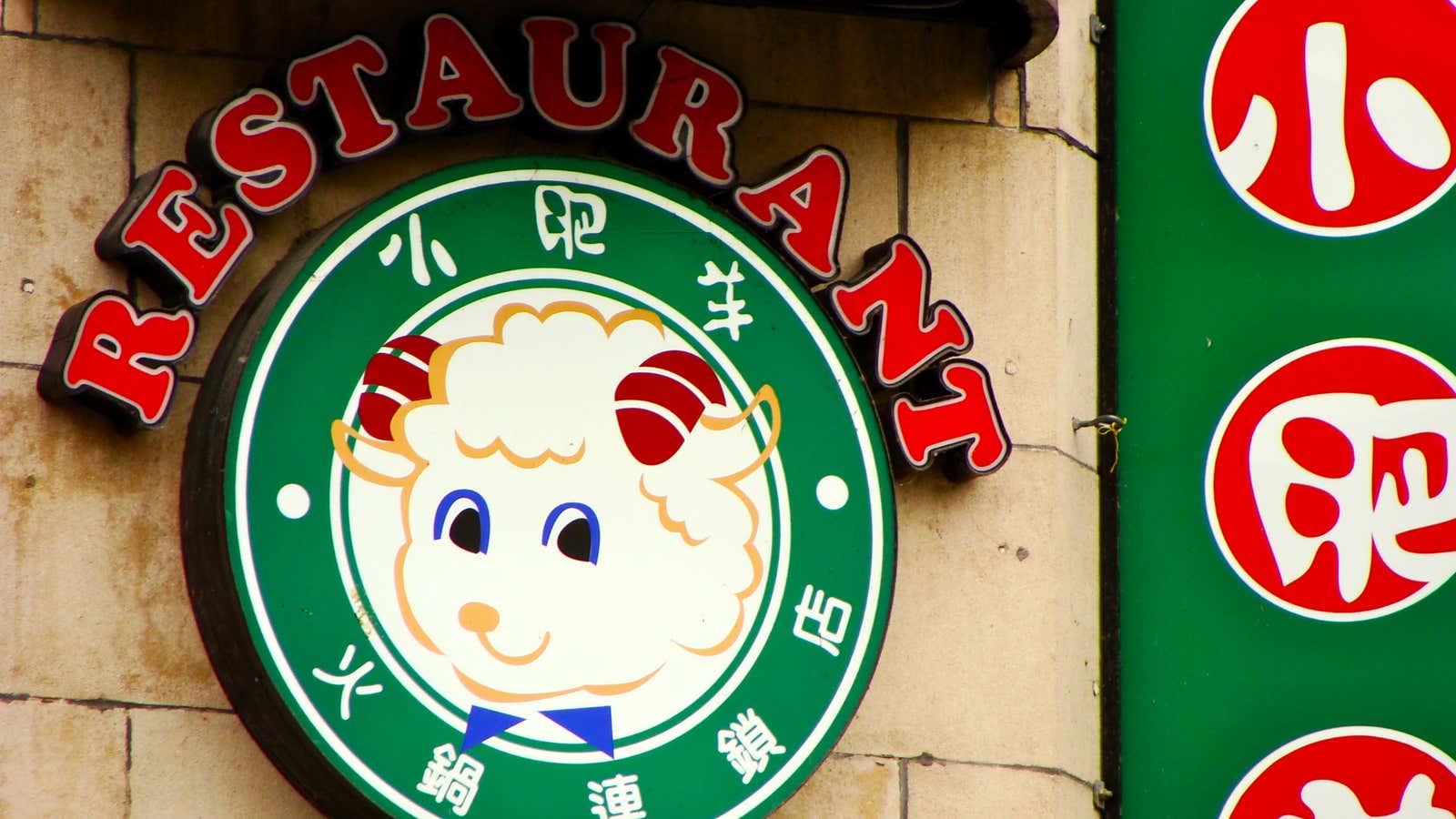This item has been updated.
China’s crackdown on fake and toxic meat has taken a nauseating new turn. Last week, Shanghai authorities revealed that “adulterated lamb”—fraudulently labeled meat from mink, foxes, and rats—had been seized in a raid on a Shanghai wholesale market. Earlier today, authorities alleged that one vendor may have sold “suspicious” meat to the Little Sheep hot pot chain (links in Chinese), which is majority-owned by Yum Brands.
Update: Jonathan Blum, senior vice president at Yum, tells Quartz that the allegations are “nothing more than a rumor,” and that the company holds Little Sheep restaurants to strict sourcing standards. “We require that they purchase high-quality mutton from two suppliers, and we regularly audit those suppliers,” says Blum. “We will re-verify that no one has violated our standards, but we have absolutely no evidence [of Little Sheep’s having purchased] ‘adulterated lamb.'”
Shanghai authorities say they are testing the seized meat, and should have results in about a week. They noted that the use of adulterated lamb “has long been an open secret” (link in Chinese) in the industry. Sina Weibo users have been discussing various tricks used to mimic lamb, which is more expensive than other kinds of animal protein. Tea Leaf Nation highlighted one method: “Rat meat + gelatin + red food coloring + nitrates = lamb.”
China accounts for 42% of Yum’s profits, primarily through its KFC restaurant chain, which has suffered a slew of problems of late. In addition to a recent scandal about the quality of its chickens, worries about the avian flu that has so far killed 27 in China are taking its toll as well. Operating profits for Yum’s China divisions tumbled 41% in the first quarter of 2013.
Yum owns a 93% stake in Little Sheep. The company noted in its annual report that it has “limited or no experience with certain aspects of the Little Sheep business,” including the “methods of cooking involved in ‘hot pot’ restaurants” (pdf, p.9).
